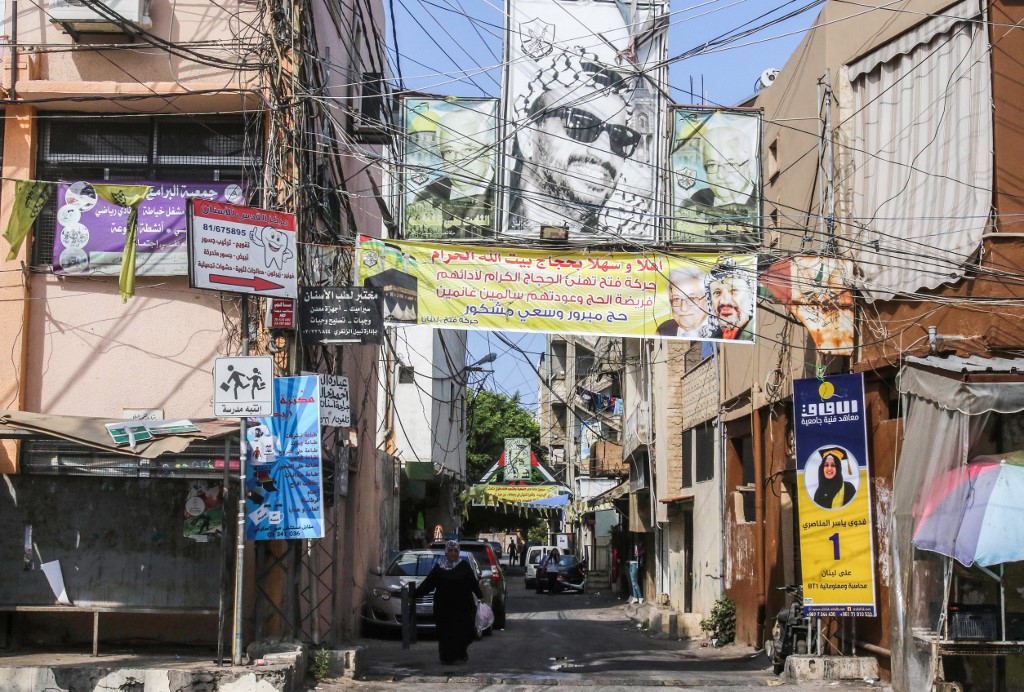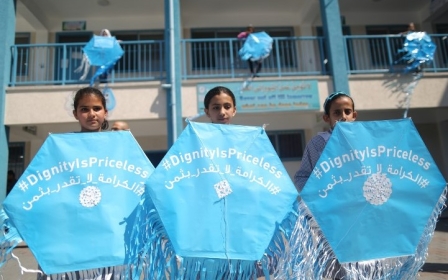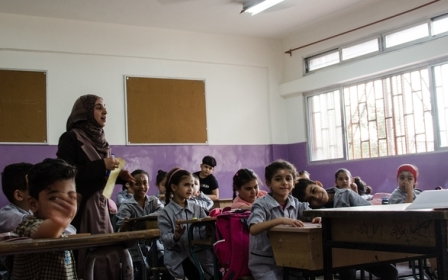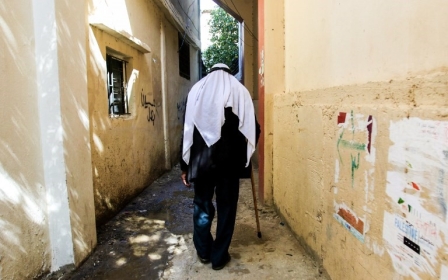Palestinians living in Israel are forgotten by Trump's 'deal of the century'

Palestinians within Israel have never been considered as part of the Arab-Zionist conflict by the international community, but rather as a non-Jewish ethnic group living in the state of Israel and facing discrimination.
The “deal of the century”, which has been in progress since US President Donald Trump took office, was prefaced by a massive blow against millions of Palestinian refugees, as the US cut financial aid to UNRWA, the United Nations agency that provides them with critical services.
The moving of the US embassy to Jerusalem was a further step intended to eliminate the most basic tenet of the Palestinian cause: the right of Palestinian refugees to their homes in historic Palestine.
Few people pay attention to the fact that Palestinian refugees, scattered in the camps of Gaza, the West Bank, Lebanon, Syria and other places, are direct relatives of the Palestinians within Israel. I have relatives in refugee camps in Lebanon, Jordan and Syria.
In 1992, I met for the first time my then-79-year-old aunt, who, along with scores of other relatives, was forced to flee our village in 1948. She came from Lebanon after obtaining an Israeli permit to visit her relatives. Her visit left us with immense pain and grief, after she surprised us by asking that we try to determine from Israeli authorities the location of the body of one of her three sons, killed during the brutal Israeli invasion of Lebanon in 1982.
What further agonised us was her wish to spend the rest of her life with us, where she was born and grew up - but apartheid Israel would never agree, because she is not Jewish.
What further agonised us was her wish to spend the rest of her life with us, where she was born and grew up - but apartheid Israel would never agree
This heartbreaking story is but a symbol of the suffering of millions of refugees, who have been languishing in appalling conditions - including wars - and waiting to return home for more than seven decades.
Israel’s Law of Return entitles Jews only, from all over the world, to immigrate, and in many cases to live in the houses from which these refugees were forced out.
All international peace conferences and initiatives aimed at finding a solution to the Palestinian issue have ignored these refugees' national rights, and even their mere existence.
The most disappointing and frustrating of these was the 1993 Oslo agreement, which took them by surprise, along with the rest of the Palestinian people - especially the refugees.
This frustration stemmed from the consent of the Palestine Liberation Organisation (PLO) leadership to exclude from the deal the 1.5-million-strong Palestinian community who survived the 1948 ethnic cleansing carried out by Zionist gangs, and who have since lived under a system of discrimination, land theft, denationalisation and other forms of oppression.
Adding insult to injury
The forthcoming US “deal of the century” has only added insult to injury. But contrary to Oslo - which at the time seemed to many as a major breakthrough and a promising path to real peace - Trump’s deal is seen by many Palestinians as a US-Israeli plan to permanently liquidate the national and political rights of all Palestinians, including those living inside the 1948 borders of Israel.
Most degrading about this deal is the way in which it approaches the decades-long human rights plight of Palestinians as an economic issue.
Trump’s deal is seen by many Palestinians as a US-Israeli plan to permanently liquidate the national and political rights of all Palestinians
Saudi Arabia announced that Palestinian businessmen with Israeli passports could be granted permanent residency in the kingdom: “As part of the trend in the unfreezing of relations between Israel and Saudi Arabia, the new plan will also allow Israeli Arabs to work in Saudi Arabia,” noted an article in the Israeli business publication Globes.
This announcement has raised strong suspicions among Palestinian political leaders and intellectuals that this is a step in the ongoing process of normalisation with the enemy, and a tool in the push for the “deal of the century” - a deal already met with rejection by Palestinians everywhere.
This approach is in line with Israel’s official policy, pursued since 1948, to tame and co-opt Palestinians within Israel. The recent shifts in Saudi, Emirati and Bahraini media towards Israel clearly show a push to prepare Saudi public opinion for normalisation with Israel.
Anti-apartheid struggle
In recent years, as Israel has lurched further towards the extreme right, the geographical and political landscape of Palestine has become one united entity under a single system of separation and settler-colonialism. This de facto creep of the colonial project contravenes the internationally backed two-state solution.
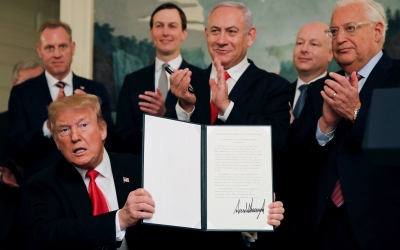
Now, the Trump administration, through the forthcoming “deal of the century”, has dealt a knockout blow to the two-state illusion. It is legitimising the ongoing Zionist colonisation of all of Palestine, opening the door to further wars and bloodshed.
As one of the world’s most serious political and humanitarian causes is reduced to a business plan by the biggest imperial power in the world, Palestinians everywhere - including those with Israeli citizenship - will find themselves facing a massive challenge.
They must seek unity to wage a lengthy struggle to dismantle not only the siege of Gaza, but the entire Israeli apartheid regime, and replace it with a democratic and egalitarian entity for all.
Voices advocating for the unification of the Palestinian polity and grassroots movements around this option have been growing. The South African anti-apartheid struggle is their inspiration.
The views expressed in this article belong to the author and do not necessarily reflect the editorial policy of Middle East Eye.
Middle East Eye propose une couverture et une analyse indépendantes et incomparables du Moyen-Orient, de l’Afrique du Nord et d’autres régions du monde. Pour en savoir plus sur la reprise de ce contenu et les frais qui s’appliquent, veuillez remplir ce formulaire [en anglais]. Pour en savoir plus sur MEE, cliquez ici [en anglais].



